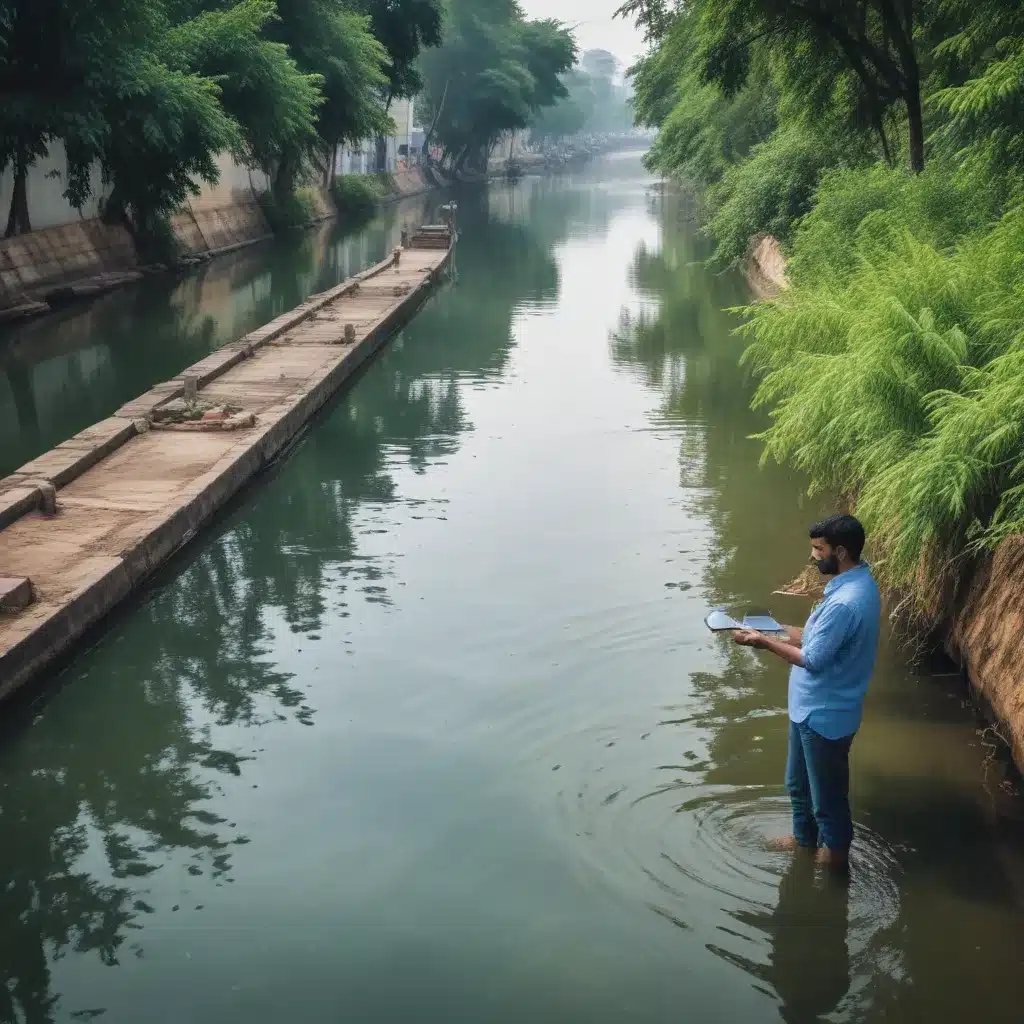
Revolutionizing Water Quality Monitoring with Cutting-Edge Digital Solutions
In the rapidly evolving landscape of urban development, the city of Hyderabad faces the pressing challenge of ensuring reliable and sustainable water management for its growing population. As a seasoned expert in water and sanitation services, community engagement, and advocacy, I am excited to share insights on how the strategic integration of big data and digital technologies can transform water quality monitoring in Hyderabad, paving the way for a more resilient and equitable future.
Embracing the IoT Revolution for Real-Time Water Insights
The Internet of Things (IoT) has emerged as a game-changing solution for smart city infrastructure, enabling the seamless connection of physical objects, sensors, and communication networks. By leveraging this technology, Hyderabad can unlock a wealth of real-time data on its water resources, from quality and quantity to distribution and consumption patterns.
IoT-enabled water sensors, strategically deployed across the city’s water infrastructure, can continuously monitor key parameters such as pH levels, turbidity, dissolved oxygen, and contaminant concentrations. This data, when integrated into a centralized platform, can provide a comprehensive, real-time understanding of the city’s water quality, empowering policymakers, utilities, and residents to make informed decisions.
Harnessing the Power of AI and Machine Learning
Complementing the IoT-driven data collection, the integration of Artificial Intelligence (AI) and Machine Learning (ML) algorithms can unlock the true potential of this wealth of information. By applying advanced analytics and predictive modeling, the city can:
- Identify and address water quality issues: AI-powered anomaly detection can quickly pinpoint deviations from normal water quality patterns, enabling rapid response and proactive mitigation strategies.
- Forecast water quality dynamics: ML-based predictive models can anticipate changes in water quality, allowing for preemptive planning and resource allocation to maintain consistent, high-quality water supply.
- Optimize water infrastructure and operations: AI-driven insights can help streamline water distribution, treatment, and monitoring processes, improving efficiency and reducing operational costs.
Empowering Community Engagement and Advocacy
Effective water quality monitoring not only relies on technological advancements but also on the active engagement and participation of the local community. By integrating crowdsourcing and citizen science initiatives, Hyderabad can leverage the collective knowledge and observations of its residents to supplement the IoT-generated data.
Through mobile apps and web-based platforms, community members can report water quality concerns, share water usage patterns, and provide valuable on-the-ground insights. This collaborative approach not only enhances data accuracy but also fosters a sense of ownership and responsibility among citizens, empowering them to become active stewards of their water resources.
Unlocking the Potential of Geospatial Data and Visualization
Geospatial technologies, such as Geographic Information Systems (GIS) and remote sensing, play a crucial role in water quality monitoring and management. By integrating these tools with the IoT and AI-powered analytics, Hyderabad can create dynamic, interactive maps that visualize water quality data across the city.
These visual representations can help identify spatial patterns, hotspots, and trends, enabling policymakers and water utilities to prioritize interventions and allocate resources effectively. Moreover, the integration of 3D modeling and augmented reality can provide an immersive, data-driven understanding of the city’s water infrastructure and its impact on the local environment.
Fostering Collaboration and Knowledge Sharing
Achieving sustainable water quality management in Hyderabad requires a collaborative approach that brings together various stakeholders, including government agencies, research institutions, water utilities, and community organizations. By establishing cross-sectoral partnerships, the city can leverage the expertise and resources of diverse partners to:
- Share best practices and lessons learned: Facilitate the exchange of knowledge and successful case studies from other cities and regions facing similar water quality challenges.
- Develop innovative financing mechanisms: Explore public-private partnerships, crowdfunding, and other innovative financing models to fund the deployment of digital water quality monitoring solutions.
- Strengthen policy and regulatory frameworks: Work with policymakers to update and enforce water quality standards, ensuring accountability and long-term sustainability.
Towards a Resilient and Equitable Water Future
By harnessing the power of big data and digital technologies, Hyderabad can transform its water quality monitoring capabilities, transitioning from a reactive to a proactive and adaptive approach. This holistic, data-driven strategy can lead to several transformative outcomes:
- Improved water quality and public health: Timely detection and mitigation of water quality issues can safeguard the health and well-being of Hyderabad’s residents, particularly the most vulnerable populations.
- Enhanced water security and sustainability: Optimized water infrastructure and distribution, coupled with predictive analytics, can ensure the continuous availability of clean, reliable water supplies.
- Increased community engagement and trust: The seamless integration of citizen science and crowdsourcing can foster a sense of shared responsibility and empower residents to become active participants in water management.
- Informed policy and decision-making: Data-driven insights can guide policymakers and water utilities in making evidence-based decisions, leading to more effective and equitable water resource management.
As we embark on this journey of digital transformation, Hyderabad has the unique opportunity to position itself as a leading example of sustainable, data-driven water management in India. By leveraging the synergies between IoT, AI, and geospatial technologies, the city can pave the way for a more resilient and equitable water future, setting a precedent for other urban centers to follow.
Conclusion: Unlocking a Sustainable Water Future for Hyderabad
The integration of big data and digital technologies in Hyderabad’s water quality monitoring efforts holds immense promise for creating a more sustainable, resilient, and inclusive water future for the city. By harnessing the power of IoT, AI, and geospatial data, Hyderabad can transform its water management practices, empowering its citizens, informing policymakers, and safeguarding its precious water resources.
As we continue to navigate the challenges of urbanization and climate change, the innovative strategies outlined in this article can serve as a blueprint for other cities aspiring to achieve water security and quality. By fostering cross-sectoral collaboration and community engagement, Hyderabad can lead the way in demonstrating how the strategic application of cutting-edge digital solutions can revolutionize water management and pave the path towards a more equitable and sustainable future.

